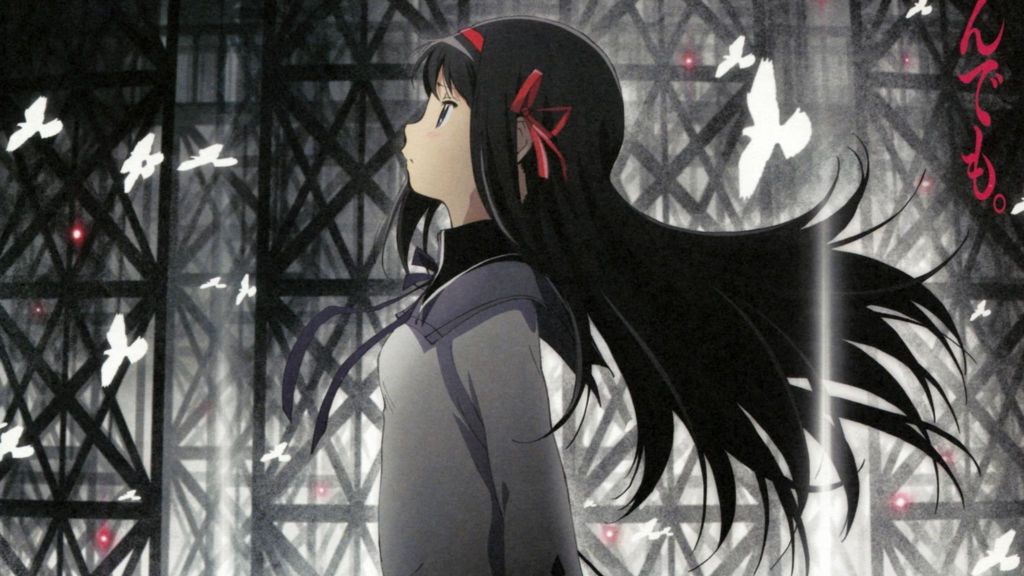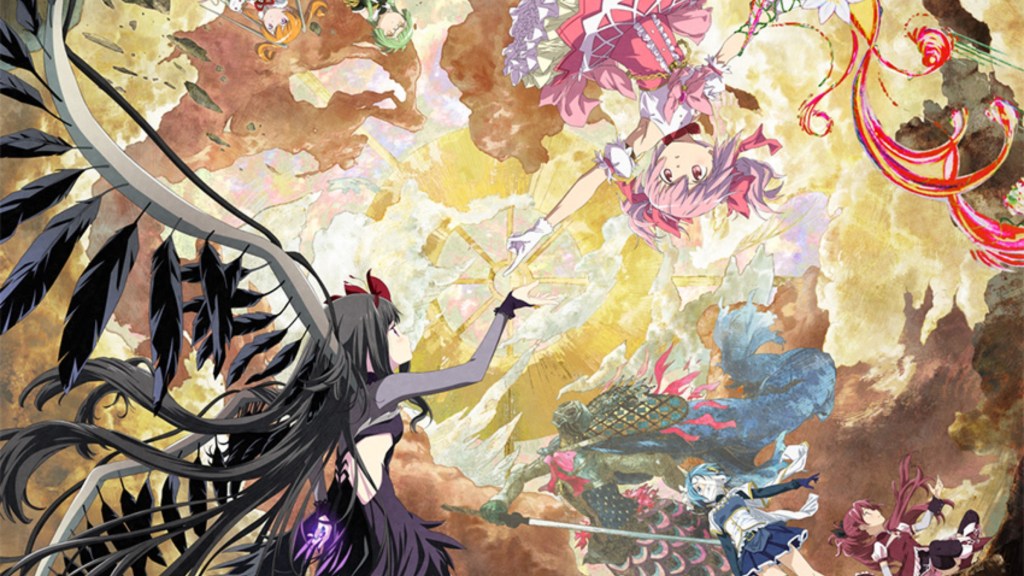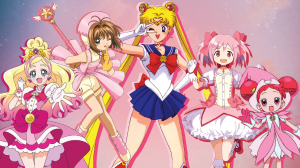
No one knew how popular Puella Magi Madoka Magica was going to be when it hit the anime scene in 2011. The series, marketed as a typical magical girl anime, hid its darker themes and somber tone, surprising viewers and critics with its depth. The twelve-episode series, while harrowing, was able to wrap everything in a conclusive and hopeful finale. If the series ended with its twelfth episode, fans would’ve been pleased, and the series would be remembered as a one-season wonder. Yet since the series became a massive hit, a trilogy of films was commissioned. The first two movies were recaps that covered the 12-episode series, whereas the third was a completely new story that took place after the show.
Puella Magi Madoka Magica: Rebellion pulled the rug underneath the audience’s feet once again, delivering a divisive ending that has been left dangling since 2013. Although the original anime was melancholic and dreary, it concluded on a bittersweet yet positive note. Contrastingly, Rebellion is more bitter, angrier, and cynical, undermining the uplifting message the original series left for something more dark. Fans have been anticipating a proper follow-up to Rebellion for the last twelve years, and they will finally be getting it with Walpurgisnacht: Rising. The wait for the fourth Madoka Magica film cannot be overstated; this has been a long time for everyone.
Why Fans Have Been Waiting So Long for Puella Magi Madoka Magica Walpurgisnacht: Rising

Puella Magi Madoka Magica: Rebellion left the franchise on a huge cliffhanger. After stopping Kyubey’s plan to capture Ultimate Madoka from a higher plane of existence, Madoka was about to ascend Homura Akemi’s spirit into the afterlife. However, instead of embracing Madoka, Homura used her corrupted Witch powers to pull Madoka from the other side, splitting her in two, and sealing her godlike powers. Homura then transforms into Devil Homura, rewriting all of reality so that Madoka can return to the land of the living and become a normal schoolgirl. In one of the last haunting scenes, Homura claims she wasn’t corrupted out of hopelessness, but out of love for Madoka. Rebellion ends with Homura recognizing that Madoka will become her enemy if she remembers, but doesn’t care as long as Madoka can live a normal life.
Rebellion‘s ending felt like a slap to the face from fans of the show, with many feeling it went against the anime’s original hopeful finale. The original anime’s core theme centers on having hope in dire situations and the importance of friendship, with the relationship between Madoka and Homura being the primary focal point of the series’ thesis. While Homura came across as cold, it’s revealed that she has been part of a time loop where she continues to attempt to save Madoka’s life. Homura has always been portrayed to be Madoka’s biggest supporter, so her ultimate betrayal at the end of Rebellion felt out-of-character at the time. However, Homura’s attachment towards Madoka is part of the larger character arc concerning obsession and co-dependency.
Homura’s betrayal and descent into a demon is part of the character’s unhealthy reliance on Madoka. While the series ended their relationship on an uplifting note, Rebellion continued Homura’s unhealthy attachment to Madoka and pushed it to the extreme, foregoing the uplifting series finale to deliver something more cynical but oddly grounded. Rebellion blurs the lines between obsession and love, selfishness and selflessness, highlighting the negative side of friendships. Even though Rebellion‘s ending continues to be a divisive topic among fans, it still feels very much like the first half of a bigger storyline. Rebellion‘s closing minutes are still very thought-provoking, and a follow-up could potentially clear up things that didn’t sit well with fans at the time.
The Long Road To Walpurgisnacht: Rising

Unfortunately, the idea of a follow-up to Rebellion was never guaranteed. The franchise continued with mobile titles and spin-offs, with a direct follow-up to the mainline story not being unveiled until 2015, when the staff from SHAFT Studios shared a short proof-of-concept video for a hypothetical new film. Walpurgisnacht: Rising wouldn’t be officially announced until 2021, during the franchise’s tenth anniversary and eight years after Rebellion opened in Japanese theaters. Walpurgisnacht: Rising was hit with multiple delays, with the creators stating it took longer than expected to finalize certain things about the film. The first trailer for the motion picture was shared in September 2023 and was expected to be released in 2024, before being delayed into 2025, and then again to 2026.
Lucky for all of us, Walpurgisnacht: Rising will now officially open in theaters in February 2026. After nearly thirteen long years, fans will finally have a follow-up to Homura’s betrayal. However, fans should expect another rug pull. The series has always been known to give viewers unexpected twists, with Walpurgisnacht: Rising possibly delivering the biggest story development yet.
The post Why the New Madoka Magica Film Has Been 13 Years in the Making appeared first on ComicBook.com.

